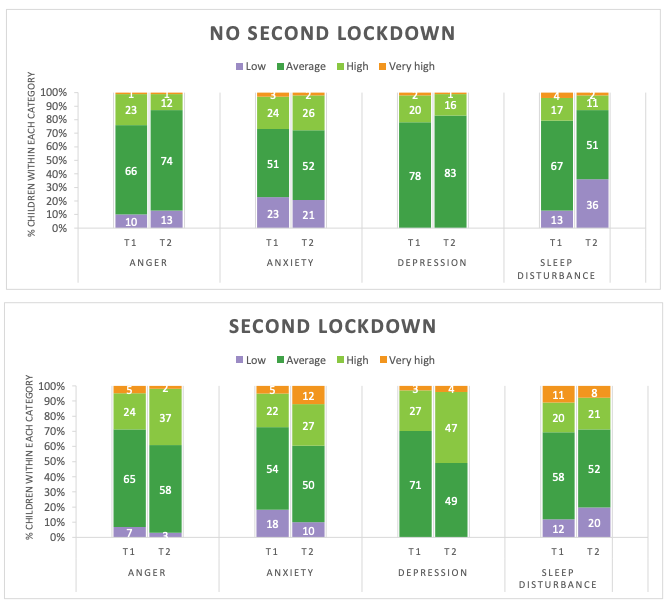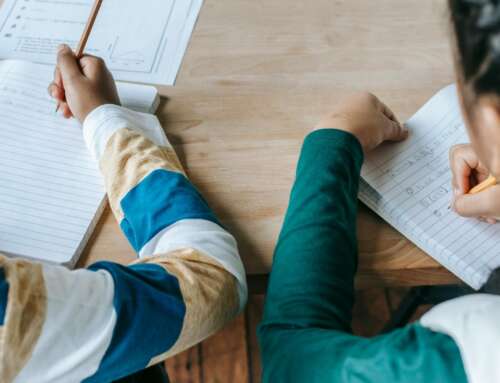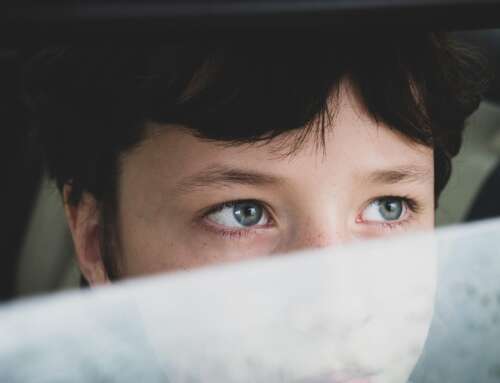Details are emerging about how the pandemic has affected Australian young children – aged between 1 and 5 years – who had their education and home lives disrupted in 2020.
While Australian children as a group may have fared better than those in countries with much higher COVID-19 infection and death rates, social and emotional issues have been identified via the online survey COVID-19 Unmasked.
The survey is a joint project between the Queensland Centre for Perinatal and Infant Mental Health (lead partner), Griffith University, the University of Queensland, the University of Southern Queensland and the University of Melbourne.
Rather than the direct exposure to COVID-19, survey results suggest that the indirect impact of the pandemic due to disruptions and loss had a strong negative effect on child wellbeing.
Victorian children and their families who experienced an extended second lockdown have, perhaps unsurprisingly, been more heavily affected in 2020 than those in other states and territories.
The COVID-19 Unmasked survey looks at the pandemic’s impact on young children, their parents, carers, and broader family life. The online survey started in May 2020 in Australia and is periodically collecting data at three, six, and 12 months following the first participation.
The first report, based on a survey completed from May to July 2020, during the easing of restrictions and before Victoria’s second wave, included data on about 998 children and their families.
The survey showed that although most young children were resilient to the impact of the pandemic, 15-to-20 per cent had mild to moderate emotional or behavioural difficulties including anxiety, irritability, depression, and sleep disturbance.
During the first months of the pandemic, 1-in-5 parents and carers were struggling with moderate to severe levels of stress, anxiety and depression symptoms.

Our second report, COVID-19 Unmasked Report 2, reveals that Victorian children were more heavily impacted than those in other states.
The survey followed up 373 parents between August and November 2020, which included Victoria’s stricter Stage 4 lockdown involving border closures, travel restrictions, mandatory mask wearing, and the closure of many shops and restaurants. Schools and early childcare were closed for most children.
Only two children and one per cent of family members who participated in the survey were diagnosed with COVID-19 during this time. Nevertheless, children, parents and carers, especially those who experienced a second lockdown, were affected in many ways.
Our key findings about child wellbeing were:
- Children who experienced the second lockdown in Victoria were two-to-five times more likely to show emotional and behavioural difficulties than children in the other states.
- Emotional and behavioural difficulties in children who experienced a second lockdown significantly increased during the three months between both surveys. Up to 13 per cent of these children experienced very high levels of emotional and behavioural difficulties. Anxiety was most common and there was a marked increase of 21 per cent in high-to-very high depression symptoms. Parents reported that 28 per cent of children were clingier and 36 per cent demanded more attention and support.
Parents and carers were also affected. Between 27-to-44 per cent of parents who experienced the second lockdown in Victoria reported moderate to severe symptoms of depression, anxiety, and stress with symptoms significantly increasing over time. This was an increase of 7-to-14 per cent.
In comparison, there was no significant change in scores for parents in the other states.
While the difficulties families have encountered will probably be temporary for most, some children, parents and carers may require higher levels of psychological support as Australia continues to deal with and eventually moves on from the pandemic.
Our findings showed that this is especially so for families living in Victoria or areas that might experience prolonged lockdowns in the future.
Children who continue to demonstrate moderate to high levels of emotional or behavioural difficulties may require professional intervention. We all need to be alert to this possibility.
Our findings indicate that a substantial proportion of parents of young children who experienced the second lockdown in Victoria struggled with stress and mental health symptoms and might also benefit from psychological support.
If these problems persist or interfere with daily activities, or if parents and carers are unsure if these behaviours are ‘normal’, families should seek professional advice. They can contact their GP or use online resources such as Head to Health.
Australia has fared well compared to many countries during the pandemic, but that doesn’t mean our children will sail through unaffected. Our survey shows that some will face problems now and after the pandemic ends.
As a society we need to be ready to support them.
If you or anyone you know needs help or support, you can call Lifeline on 13 11 14 or Beyond Blue Coronavirus Mental Wellbeing Support Service – 1800 512 348 or coronavirus.beyondblue.org.au
Our team surveyed Australian families collaborating with the Queensland Centre for Perinatal and Infant Mental Health and researchers from Griffith University, the University of Queensland and the University of Southern Queensland.
The research team also has a global collaboration with eight other sites who conducted the survey in their countries (Cyprus and Greece, the Netherlands, Poland, Spain, Turkey, the UK, and the USA).







Leave A Comment